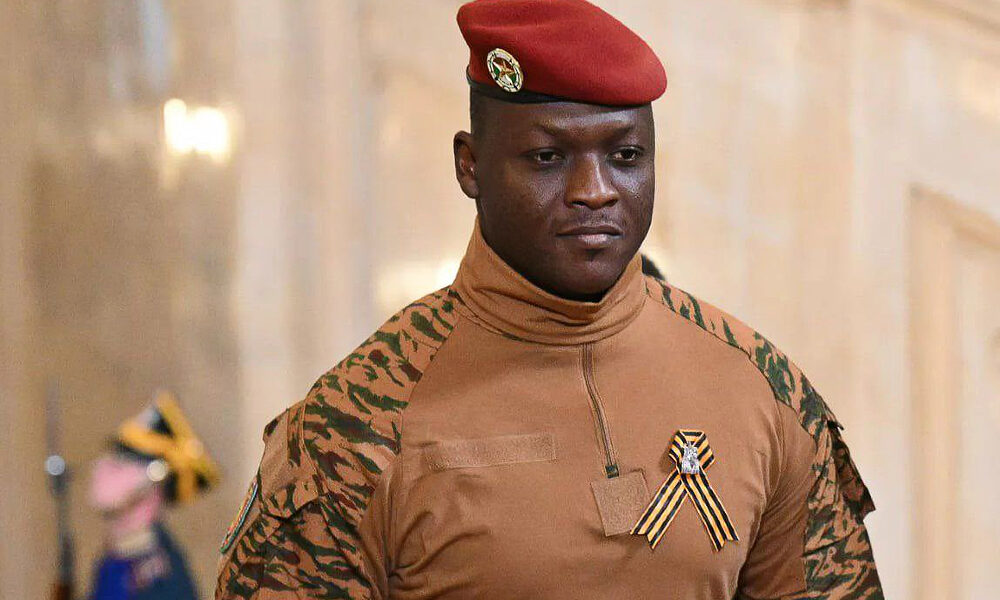Capt Ibrahim Traoré: A Rising Star in Pan-African Leadership
At just 37 years old, Capt Ibrahim Traoré, the military ruler of Burkina Faso, has emerged as a formidable figure on the African political stage with his assertive stance against Western influence. Traoré has effectively crafted an image as a champion for a united Africa, drawing comparisons to the famed revolutionary Thomas Sankara, who once led Burkina Faso and is celebrated as a symbol of resistance against colonialism.
His views resonate not only within Burkina Faso but also across the continent and beyond. Beverly Ochieng, a senior researcher at Control Risks, noted, “His impact is immense. In East Africa, I’ve heard politicians express their support, saying, ‘This is the person we need.'” She added that Traoré’s rhetoric reflects a growing sentiment among Africans questioning their historical ties to Western powers amidst ongoing poverty in a resource-rich continent.
Navigating Alliances and Economic Policies
Since taking power in 2022 through a military coup, Traoré has shifted Burkina Faso’s foreign relations away from France towards a burgeoning partnership with Russia. This alliance includes the deployment of Russian paramilitary forces and the implementation of left-wing economic reforms aimed at increasing national control over resources.
Central to this strategy is the establishment of a state-owned mining entity that guarantees the government a 15% stake in local operations, with a requirement for foreign companies to share expertise with Burkinabé workers. Recently, Russian mining company Nordgold has received a license to operate in Burkina Faso, indicating the influence of this new partnership.
Charting a New Course for Mineral Wealth
As part of Traoré’s initiative, the junta is constructing a gold refinery and initiating national gold reserves, representing a significant step towards maximizing the country’s mineral wealth. This has not come without challenges; Australian company Sarama Resources has filed for arbitration due to the revocation of its exploration license, illustrating the struggles of Western firms under Traoré’s regime.
| Key Economic Policies | Impact |
|---|---|
| State-Owned Mining Company | 15% stake in foreign operations |
| Gold Refinery Construction | First national reserves in history |
| Collaboration with Russia | Military support and economic partnership |
Controversies and Popularity
Despite his rising popularity, Traoré’s administration faces criticism for its failure to suppress a prolonged Islamist insurgency that has exacerbated ethnic tensions, affecting regional stability in West Africa. His regime has also been accused of stifling dissent, taking punitive measures against critics, including media operatives and civil rights advocates.
Analysts note that Traoré’s appeal is amplified by his youthful presence in a nation where more than half the population is under 18. According to Rinaldo Depagne from the International Crisis Group, “His ability to connect with the youth, coupled with a media-savvy approach, enhances his image as a modern revolutionary.” His recent speeches, coupled with viral social media content, have fortified this image as a “new Sankara.”
A Leader for the Youth?
Traoré’s reign contrasts sharply with that of many older leaders clinging to power through questionable methods. His captivating style and powerful oratory skills draw attention, showcasing a vision that aligns with the aspirations of a younger generation disillusioned by traditional democratic failures. Ghanaian security expert Prof. Kwesi Aning suggests that Traoré, while charismatic, should now focus on establishing enduring governance structures to avoid repeating the mistakes of predecessors.
Amidst a shifting political landscape in Africa, Traoré’s continued rise signifies the volatile nature of African politics, encouraging military regimes as alternative leaders to conventional democratic practices. As this young leader inspires widespread support, his eye on economic rejuvenation may well define Burkina Faso’s role in the evolving narrative of West African politics.


